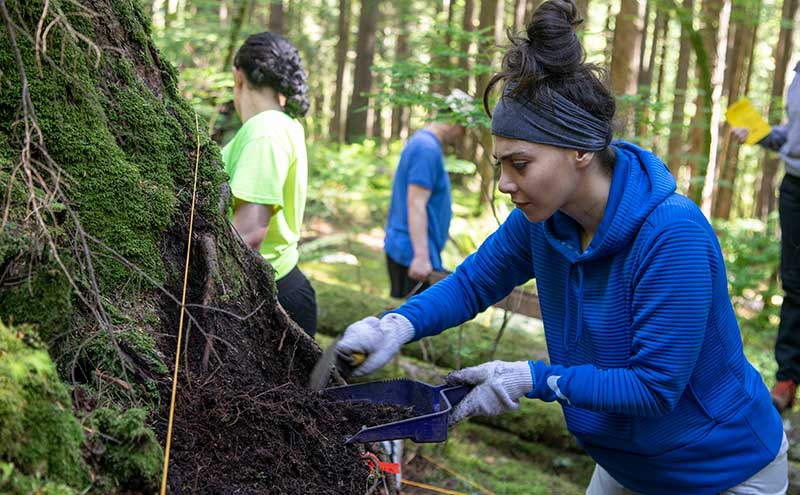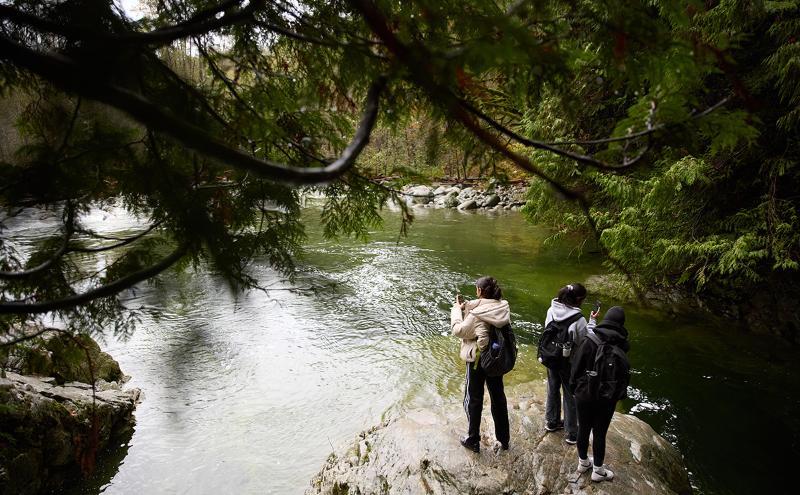Faculty
Arts & Sciences
The Bachelor of Environment and Society (Environmental Studies) degree program at CapU will help you develop the skills, knowledge and understanding to work in environmental advocacy across multiple public and non-profit sectors and industries.
At CapU, we offer two degree options for students interested in the Environment & Society program: Environmental Sciences and Environmental Studies.
If you choose the environmental studies degree, you'll take courses in various subjects, including anthropology, biology, ecology, economics, First Nations and Indigenous Peoples, geography, history, ethics, political science and statistics.
You'll have the advantage of studying in small classes and receiving mentorship from expert instructors who combine theory with practical, applied learning.
Work with local partners
You'll also work with community partners on environmental issues, helping build a sustainable balance between the needs of our region's economy, society and environment.
One of our most critical collaborative partnerships is with the Átl'ka7tsem/Howe Sound Biosphere region, which works toward ensuring the biodiversity of Howe Sound is protected and sustainable.
You'll combine the concepts of innovation, experiential learning, teamwork and leadership as you gain the confidence to tackle more complex projects.
With the training and skills you'll pick up in this bachelor's degree, you'll graduate ready to become an environmental leader.
Study in Squamish in Fall 2025

Starting Fall 2025, CapU will welcome its first students to the environmental studies degree in Squamish. Our stunning location offers a dynamic setting for environmental research.
SIGN UP

Complete your capstone in the field
The final stage of your bachelor's degree is completing the capstone course, where you'll spend the final term taking part in an experiential learning research project on an environmental topic directly connected to the local region.


